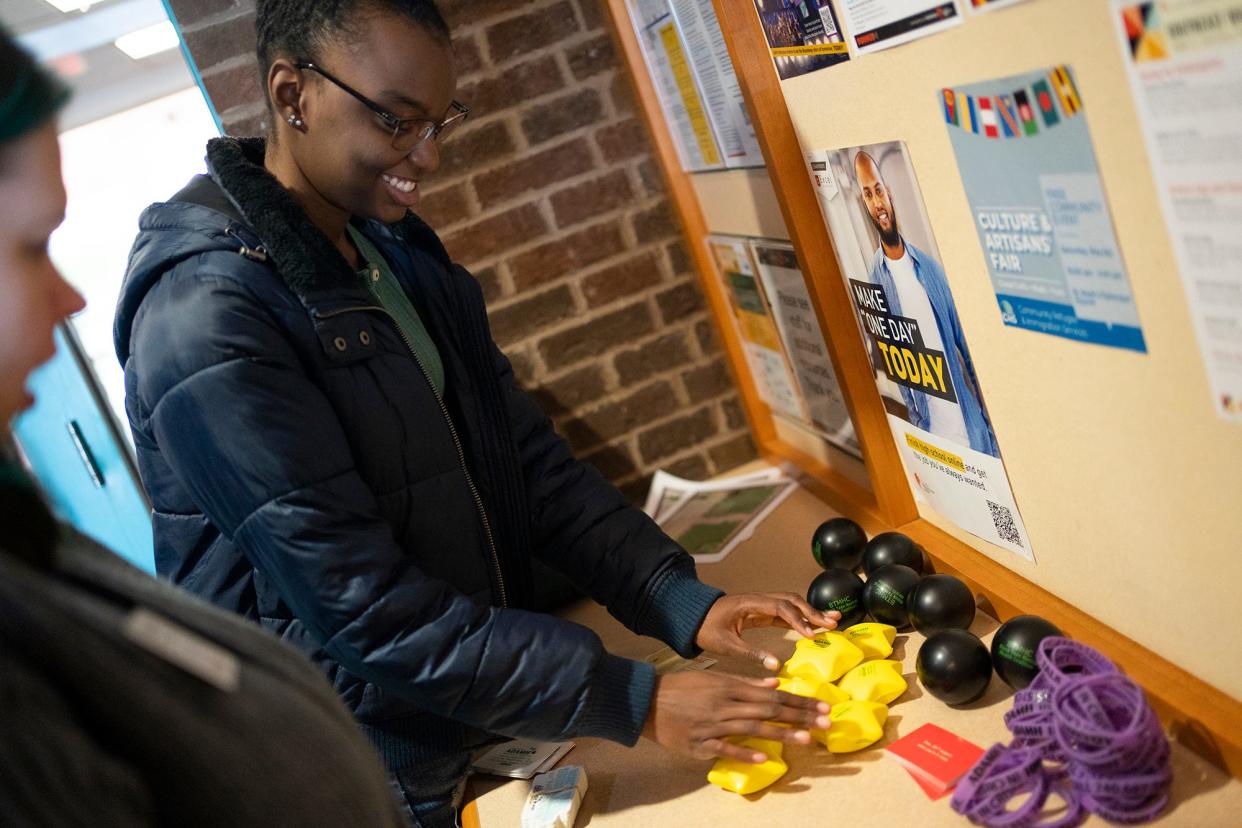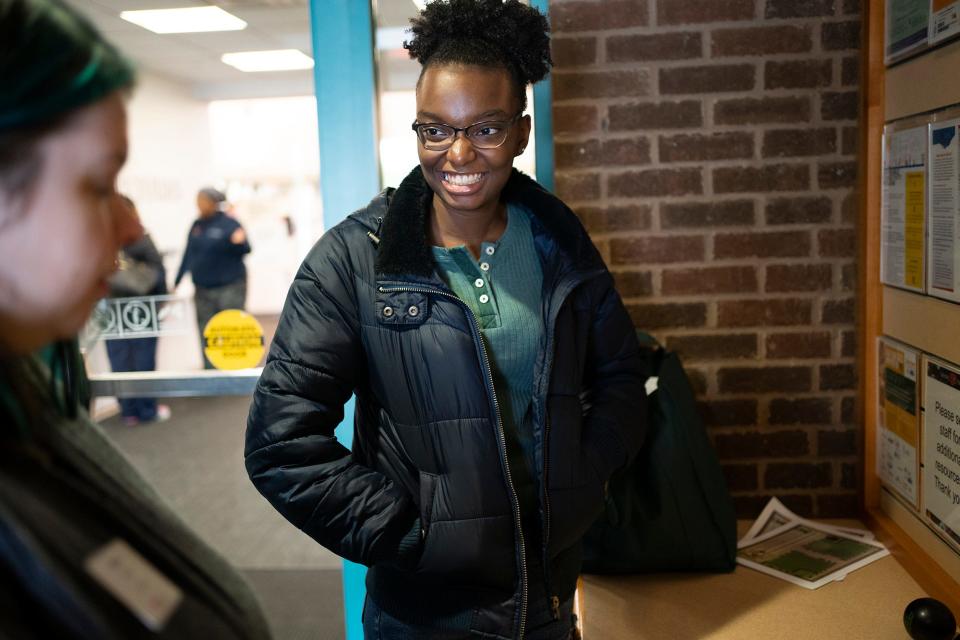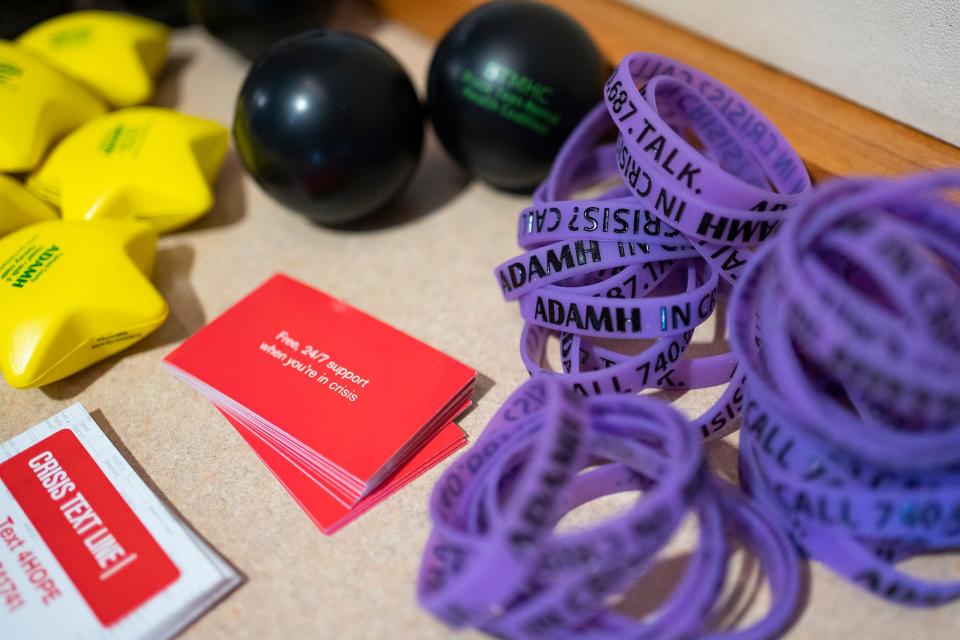Pickerington Central student forms Black Teen Mental Health Coalition to help peers

Zion Walker was in eighth grade when her parents went through a divorce.
Then came the COVID-19 pandemic, which led to isolation and even more mental health struggles.
It was then that Walker, now 17, of Pickerington, decided to set about creating a safe space for her peers.
She got involved with the Bring Change to Mind club at Pickerington High School Central, a local chapter of a national organization by the same name, founded by Academy Award-winning actress Glenn Close, that aims to promote mental health and support students, especially students of color.
But Walker soon found herself wanting more and set out to create her own organization, specifically geared toward Black teens from around the Columbus area.
More: Ohio's 988 suicide hotline is seeing a spike in calls. How is the state handling it?
More: Club members at Pickerington Central send messages for mental health
She started reaching out to as many mental health organizations as she could, eventually connecting with the Franklin County chapter of the National Alliance on Mental Illness and nonprofit ArkBuilders Inc., which works to improve mental health awareness, youth development practices and workforce development in communities.
That's how the Black Teen Mental Health Coalition was born.
In a suburban community like hers, Walker said there aren't many therapists who understand or are uniquely capable of addressing mental health challenges for people of color.
"My main goal is to give people hope," she said. "I just want African Americans to know it's not always scary. … I feel like African American people feel the racism and (experience) biased care, but I wanted people to know there are Black therapists."

The coalition, which comprises a core group of about 10 people from across central Ohio, meet once a month at a different Columbus Metropolitan Library branch. Since forming the group in September, discussion topics have included school stress and generational trauma, and in May, it plans to discuss eco-anxiety, which is concern or fear surrounding global warming and climate change, Walker said.
With help from NAMI Franklin County and ArkBuilders, the coalition helped administer a survey to collect data about people's understanding of mental health issues and the needs in the region.
The coalition also hopes to start using another of NAMI's programs, Sources of Strength, a support group designed to teach youth positive coping mechanisms and how to reduce the stigma associated with taking about mental health challenges.
Among NAMI's other signature programs are Ending the Silence, which is geared toward young children and aimed at reducing stigma associated with mental health challenges, and Mental Health 101 training, said Rachelle Martin, executive director of NAMI Franklin County. The nonprofit also administers Mental Health First Aid, a public education program through the National Council for Mental Wellbeing.

Meanwhile, NAMI is partnering with ArkBuilders to hold community conversations with immigrants and other people of color to hear about what mental health looks like to them in an effort to provide more valuable services.
"People don't want to talk about mental health in the same way they talk about cancer," Martin said. "People are hesitant to talk about their lives with someone who is a professional."
Combine that with a severe shortage of mental health providers, especially for youth, and a generational divide, and there are numerous issues that mental health professionals and advocates alike are trying to address, said Tracee Black-Fall, who facilitates Mental Health First Aid training for NAMI Franklin County.
"We're seeing children waiting for talk therapy as long as eight months," Black-Fall said. "I'm also seeing children taken to the emergency room, and they're being told that because they live with chronic mental illness, even though they're having episodes, they're being sent back home."

An increasing number of children are growing up in multigenerational homes, sometimes with grandparents and great-grandparents — who grew up "in a generation where mental health was a taboo topic of discussion" and "a character flaw" — serving as secondary, or even primary, caregivers, Black-Fall said.
"We're asking them to rethink mental health," she said.
NAMI Franklin County also works to educate people in the schools, from principals and teachers to custodians and food service staff, in order to help broaden the group of individuals who are trained to spot the warning signs.
"You've got the cafeteria worker — the lunch lady — who's seeing that the student isn't eating as much as they used to eat. … She can share that with someone," she said. "The principal can't do it by herself; the teachers can't do it by themselves."
nshuda@dispatch.com
@NathanielShuda
This article originally appeared on The Columbus Dispatch: Pickerington Central student forms Black Teen Mental Health Coalition

